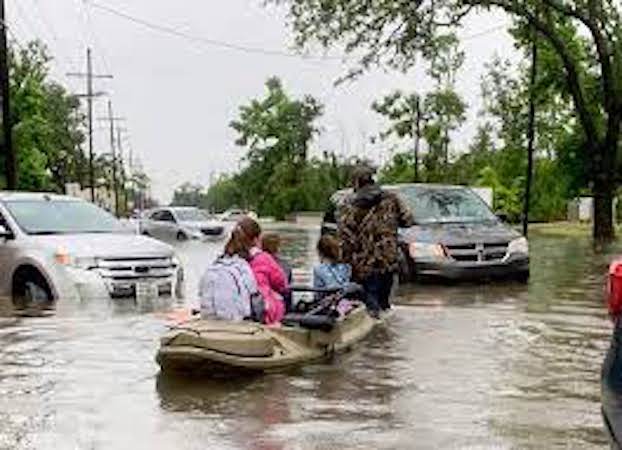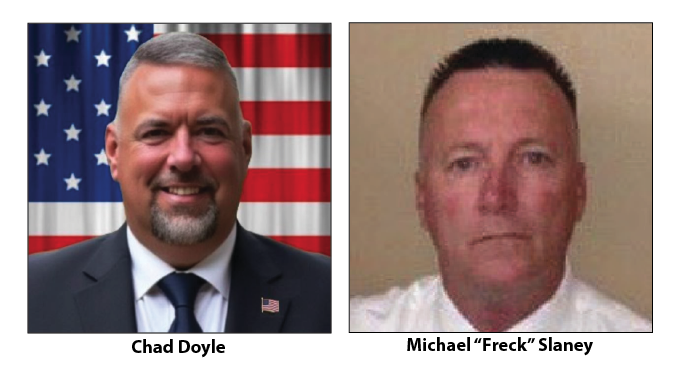Cassidy urges fix for National Flood Insurance Program
Published 6:05 am Wednesday, March 13, 2024

- Nick Delgado uses his boat to help a neighbor pick up their kids from schools during heavy rains in Lake Charles on May 17, 2021. (American Press Archives)
U.S. Sen. Cassidy, R-La. is putting pressure on Congress to take action regarding the financial strain that the National Flood Insurance Program (NFIP) is putting on households throughout the country.
Cassidy held a conference call with media Tuesday to discuss a speech that he gave on the Senate floor on Monday. In this speech, he called on Congress to address rising flood insurance premiums that have been caused by Risk Rating 2.0.
Risk Rating 2.0 is the updated pricing methodology that was fully implemented by the Federal Emergency Management Agency in April 2023. This system prices flood insurance on an individual basis, and has resulted in unsustainable NFIP insurance rates for many policyholders.
Trending
Cassidy explained that 62 percent of all NFIP policies are in parishes or counties where the median household income is below the national average, which is approximately $54,000.
“Some say this is a rich man’s program, that’s not true,” he said during the conference call.
Cassidy has been critical of NFIP and Risk Rating 2.0 for the past couple of years. After FEMA confirmed that the system would cause insurance cost spikes for many Louisiana residents, he began urging legislators to find a solution.
Then and now, he has discussed the “actuarial death spiral” in progress. This is how he describes what happens when policyholders at the lowest risk for flooding drop their insurance because of the price, while the policyholders with the highest risk continue to carry the burden.
“You concentrate the risk on fewer and fewer people, which means that cost goes up, and more drop off, and it keeps on going like that until it spirals down.”
This “death spiral” is apparent in Louisiana – Cassidy referenced the number of constituents that have made the decision to drop insurance or move because they cannot afford both an NFIP plan and a mortgage – but also has negative impacts nationwide.
Trending
In his Senate floor speech, he said that only six states have had less than $50 million in NFIP claims from 1978 to 2021, and 13 states have had over $1 billion in damage: Alabama, California, Florida, Louisiana, Mississippi, Missouri, New Jersey, New York, North Carolina, Pennsylvania, South Carolina, Texas and Virginia.
“Those are the states that have been hit the hardest but not the only ones getting hit. … This is a national issue, not just a coastal issue – not just a Louisiana issue.”
Taking action soon is paramount. Last year, the National Flood Insurance Program Reauthorization Act (NFIP-RE) – a bipartisan piece of legislation that would reform and reauthorize NFIP for five years – was reintroduced.
In January, NFIP-RE was at the forefront of a U.S. Senate Banking Committee hearing. Originally, Congress had until February 2 to reauthorize NFIP and avoid a lapse in coverage; Last week, FEMA confirmed that the president signed legislation passed by Congress to extend the NFIP authorization until March 22.
In the statement, FEMA said that “NFIP reauthorization is an opportunity for Congress to take bold steps to reduce the complexity of the program and strengthen the NFIP’s financial framework so that the program can continue helping individuals and communities take the critical step of insuring flood insurance.”
In addition to extending the program by five years, NFIP-RE would lower the premium cap to nine percent, and institute systems that include the distribution of means-tested vouchers for those experiencing excessive hikes, strengthened insurance company oversight and a simplified claims process.
Cassidy said NFIP-RA was a “great first step,” but Congress needs to “keep on moving.” During his speech on Monday, he challenged colleagues from both sides of the aisle to designate one person on their staff to research NFIP and the issues that have followed the institution of Risk Rating 2.0.
“It’s complicated, so pick one person who’s going to know it and help move this legislation forward that will benefit Louisiana, but benefit people across the nation.”
He continued by saying that he is continually committed to making NFIP more affordable, sustainable and accountable.





